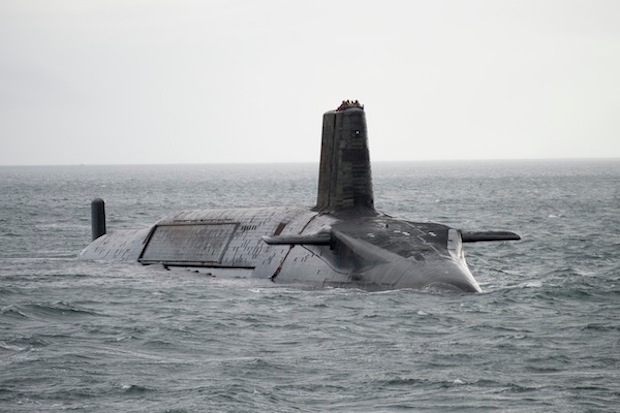Labour has delayed its Shadow Cabinet discussion of the party’s Trident review until next week, after yesterday’s meeting ran out of time for the discussion. Emily Thornberry was due to give a presentation on the nuclear deterrent yesterday, but longer discussions on parliamentary business and other matters, along with Jeremy Corbyn needing to attend his urgent question on the EU renegotiation in the Commons, meant that she merely offered a few words on the importance of the decision for the party, before promising to return to speak again.
Thornberry is also due to address the next meeting of the parliamentary Labour party on Monday, where she is likely to face questions about who she plans to consult as part of her review. Pro-Trident John Woodcock is running an alternative review in his role as backbench defence chair which he wants to feed into the official party review. This includes evidence sessions from defence experts on the nuclear deterrent, including one this afternoon on Russia, and a briefing last week from Admiral Lord Boyce, the former chief of the defence staff.
Minutes from the Boyce briefing have been circulating around Labour MPs, and I have seen a copy. It reports Boyce arguing that those who claim that scrapping Trident would mean more money for the army are ‘on another planet’, and warning that disarming could threaten the UK’s membership of Nato. The minutes report Boyce saying that ‘if we disarm on the basis we do not believe in the nuclear doctrine, then it is hard to see how the UK could stay in Nato’.
Indeed, some pro-Trident shadow ministers are wondering whether it is illogical for Labour to say that Britain should scrap Trident but continue to stay in Nato, given it is a nuclear alliance.
But this is a rather more academic point than the more immediate problem that the Labour party faces, which is what on earth to do about the ‘main gate’ vote that is approaching on Trident.
In a sense, Labour’s own position is academic, as the Commons is able to vote in favour of the various main gate commitments with or without the help of Jeremy Corbyn’s party. But given the importance of the issue both in terms of national security and internal Labour politics, the leadership needs to come up with some sort of position that doesn’t cause a meltdown, but also doesn’t make Labour look ridiculous.
Rumours that the party might abstain on the vote have been ridiculed by the Shadow Cabinet members I have spoken to: they point out that if the party decides not to turn up to votes on matters this important, there’s not much point in it existing. You could reasonably make the same point about a free vote, but at least in that situation those who support Trident can do so without rebelling, and those who think it important to put on the record that they oppose renewal can also do so. Either way, the party leadership may need to come to a decision quickly, given the Tories seem keen for a vote at some point in March.







Comments